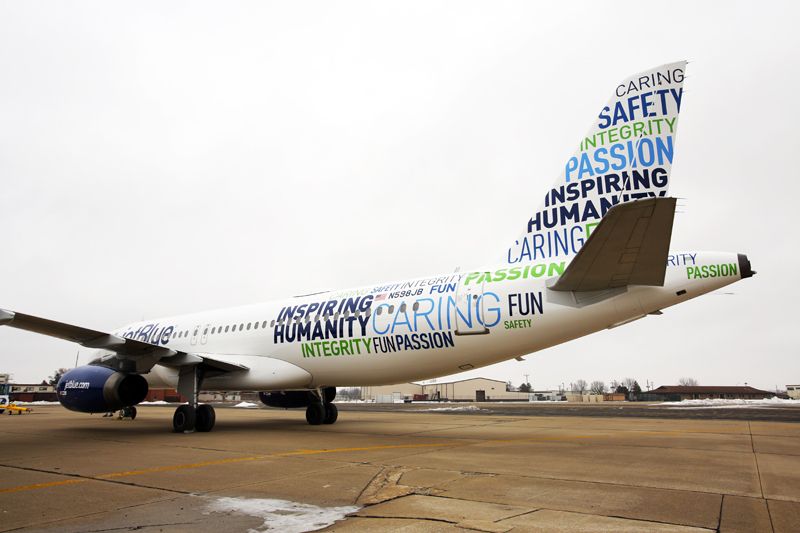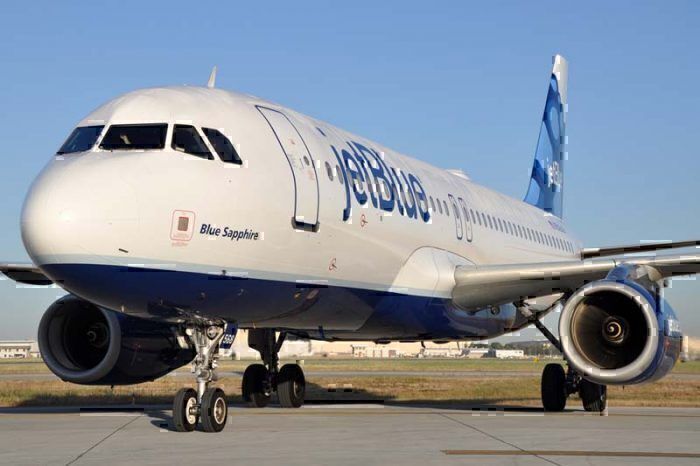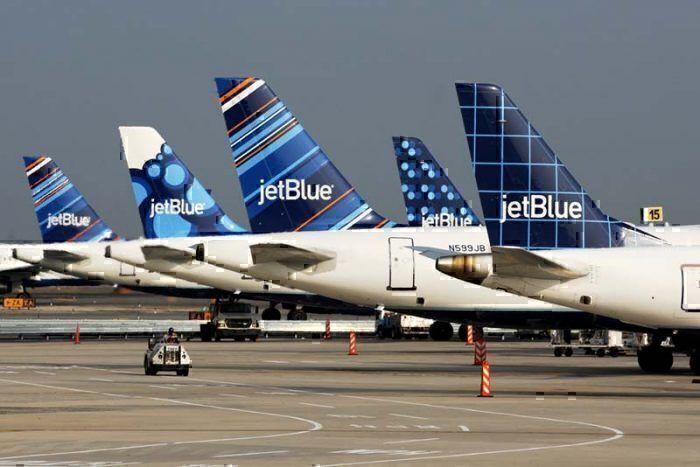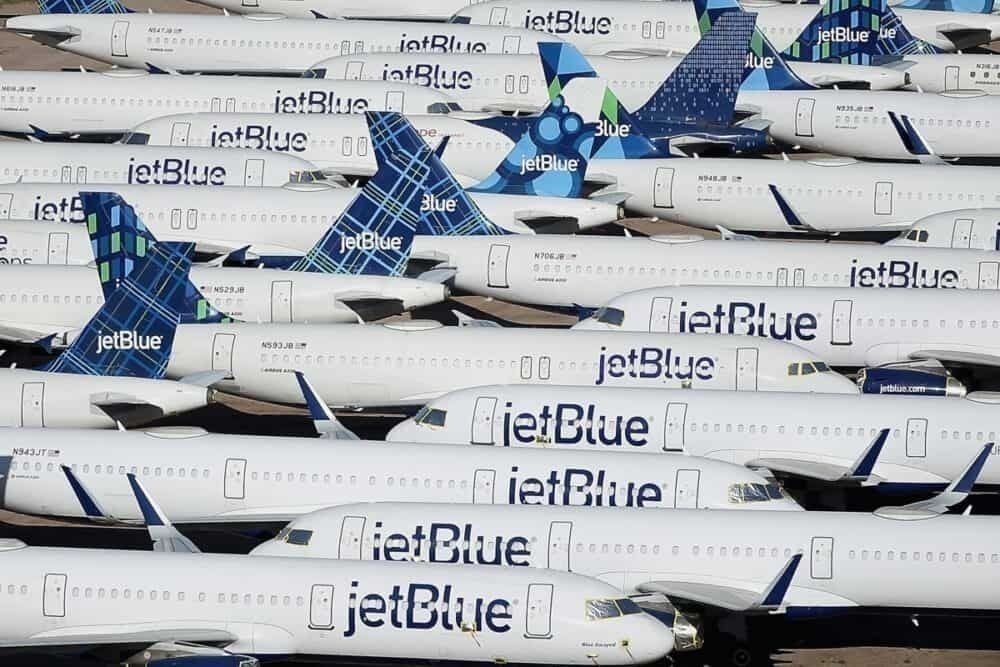The one question that's plaguing lovers of travel and flying is what will happen to the price of air fares as airlines begin to come out of the coronavirus crisis? With many missing several months of earnings and looking to implement cost-heavy measures, such as removing buy on board and undertaking enhanced cleaning, you might think the age of cheap flying is over. JetBlue's COO and President, Joanna Geraghty, doesn't think so.
Surviving COVID
JetBlue has put its head into surviving COVID-19. From working with employees to maintain its 20-year streak of never having furloughed a worker to going the extra mile to make flying safe, the airline has its finger on the pulse of what's needed to get through the crisis.
While JetBlue saw demand bottom out in mid-April, it has already been experiencing the green shoots of recovery. By July, the airline will be operating at 50% of its usual capacity, which is a much speedier return to business than was previously expected.
With middle seats blocked until the end of July, the airline has been relying on the CARES Act funding and its own efficiency management to operate flights without losses. Although the middle seat will be coming back in six weeks' time, there's a lot of ground to be made up, not just by JetBlue but by every airline out there.
As such, the question on everybody's lips is: will flying be more expensive in a post-COVID environment? JetBlue thinks not.
Fares will be reasonable
Speaking at a webinar hosted by World Aviation Festival, JetBlue's president and COO, Joanna Geraghty, was asked if she thought the fares would rise in response to the necessary extra precautions. Despite the provision of PPE for crew and passengers, as well as the extra deep cleaning required, Geraghty thinks that, overall, fares will not be affected. She said,
"Fares are largely a function of supply and demand. As long as demand starts coming back, I would expect that fares will stay reasonable. JetBlue has a long history of lower fares, and making sure we have fair fares is an important part of our legacy and our future. We are very much focused on how to ensure that, as we exit this crisis, we can continue to deliver fair fares to our customers."
When pressed about the additional cleaning, longer turnaround and lack of inflight sales and how they might affect fare pricing in the future, Joanna was similarly upbeat. She explained,
"I don't think being protected and offering a clean and healthy experience and high fares go hand in hand. I think you can offer a clean, healthy experience and also offer low fares.
"Customers, before the coronavirus pandemic, were focused on inflight entertainment and service. Their needs have changed, and as we think about those needs, we are confident we can still offer very fair fares and still address our customers' needs."
Stay informed: Sign up for our daily aviation news digest.
The new norm
One phrase that has continuously been wheeled out throughout the pandemic is this idea of the 'new normal.' Things may have changed forever, and perhaps for the better, particularly in terms of cleanliness and attention to hygiene.
Pre-COVID, airlines were focused on operating as many flights in as short a time frame as possible, with low-cost carriers, in particular, targeting very short turnaround times. But with aircraft undergoing enhanced cleaning in between trips, won't that mean this operating model goes out of the window? Geraghty doesn't think so.
"It doesn't slow the turnaround times down at this point. In terms of the demand that's coming back, it's still off of a very low base, so we're confident we can do all of these things for the foreseeable future."
According to Geraghty, the slow return of travel demand will facilitate the enhanced cleaning measures without affecting scheduling. She doesn't see demand returning to pre-COVID levels anytime soon. But there is one thing that could change the outlook.
"In the new norm, if there is a vaccine or a therapeutic treatment and air travel comes back in the short term, then we'll adjust our turn times and our schedules to reflect that."
Do you agree that airlines can manage schedules and services to keep fares low as they come out of the crisis? Or do you think that, once people start to fly again, prices will spike? Let us know in the comments.




